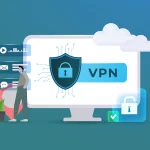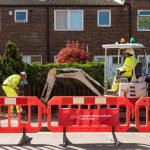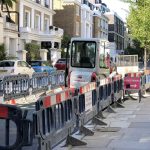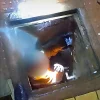Ofcom Moot Phone Number for Life as Broadband Changes UK Calling
New research from Ofcom has today suggested that remembering phone numbers – or even needing to dial them – could soon become a thing of the past as consumers are changing how they communicate and making greater use of broadband internet and mobile services. The landline phone era is slowly coming to an end.
Last year’s Communications and Market Report 2018 (CMR) has already done a good job of highlighting this change. Back in 2012 UK people made a total of 103 billion minutes of landline calls, which has fallen to just 54 billion in 2017. Over the same period mobile call minutes have increased from 132.1 billion to 148.6 billion, while the average person’s monthly mobile data usage has soared from 0.2 GigaBytes to 1.9 GB.
Now a new qualitative study from Ofcom, which is based on feedback from 14 focus groups and 8 in-depth interviews amongst a cross-section of consumers and businesses across all four UK nations, has confirmed a number of interesting findings about how we all use communication services.
Advertisement
Key Findings of the Study
* Younger people prefer to use messaging services, such as WhatsApp, rather than use their phones to talk. As one 18-year-old from Aberdeen said: “Calling someone is a bit daunting. It’s much easier and quicker to WhatsApp my friends. If I have to call a company, I’ll always try to use webchat if it’s available.”
* Older people still prefer having a conversation. A 68-year-old participant from Belfast said: “I prefer to speak to a person. You can get a better understanding.”
* People now rely on contact numbers stored in their phones, as opposed to dialling the number directly each time. It’s now common to click on a name or web link on your mobile to call a number, rather than manually dial it.
* Young and Old people have different understandings of geographic area codes. Younger people generally don’t feel strongly about whether area codes represent a particular location and many don’t even know that area codes have geographic significance (many mistake them for other numbers or associate with nuisance callers), while most older people recognise what area codes are and trust the codes local to them.
None of this is particularly new or surprising and we’ve already reported on how it’s impacting the way broadband ISPs and network suppliers operate. For example, at present Openreach (BT) supplies a copper phone line or bundles it with broadband, although the latter is considered somewhat of an optional extra (i.e. you get the phone service first and then broadband). Even though most of us only take a landline for broadband.
In the future Openreach’s approach will be reversed as they move from analogue to Internet Protocol (IP) / VoIP based communications, which means that broadband will become the primary service you buy and phone (voice calling) is the optional extra. A lot of fixed wireless and full fibre (FTTP) broadband ISPs already do this since they cannot deliver an analogue phone on the same line (e.g. optical fibres carry data in laser light, while older copper lines use electrical signals).
One interesting change with all this stems from how phone numbers themselves will change. Broadband-based call technology (e.g. VoIP) does not need area codes to tell it where to send a call. At this point the regulator asked their study group how they’d feel if area codes were scrapped, which might enable you to have a number that never changes no matter where you are (not unlike how mobile numbers work today – rarely changing between operator moves).
Some younger people welcomed the idea of having greater freedom to own a number “for life“, which they could see as becoming a part of their personal identity. But once again older people were strongly against losing geographic meaning from area codes.
Advertisement
Liz Greenberg, Head of Numbering at Ofcom, said:
“Some of us can remember a time when we stored phone numbers in our head, rather than our mobile. But the way we use and feel about telephone numbers is changing.
In the future, as more calls are made over broadband, dialling codes won’t need to be fixed to a particular part of the country. So the question is – could area codes become a thing of the past?”
Ofcom and the Office of the Telecoms Adjudicator (OTA2) have been busy working on the issue of number portability with major ISPs for some time, not least because at present it’s still too easy to lose your home phone number when moving house and sometimes while switching ISP (platform dependent). Likewise shifting a fixed phone line number to VoIP is still a process that in many cases could do with some refinement (too slow and unfamiliar to most people).
Last year this work seemed to move forward after the regulator secured £700,000 from the UK Government’s new £10m Regulators’ Pioneer Fund, which is being used to fuel a project that will seek to tackle problems like the one mentioned above (here). This will all be based around a new blockchain using trial from BT and several other participating ISPs (i.e. some form of decentralised database).
At present the trial is still only in an early stage of development and so it’s unlikely to arrive anytime soon, but the direction of travel seems clear.
Mark is a professional technology writer, IT consultant and computer engineer from Dorset (England), he also founded ISPreview in 1999 and enjoys analysing the latest telecoms and broadband developments. Find me on X (Twitter), Mastodon, Facebook, BlueSky, Threads.net and Linkedin.
« Watered Down £150m N.Ireland Broadband Project Faces Uncertainty

















































Comments are closed